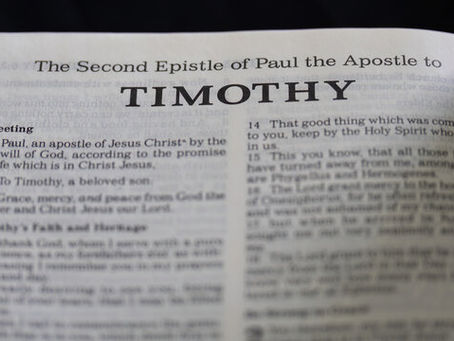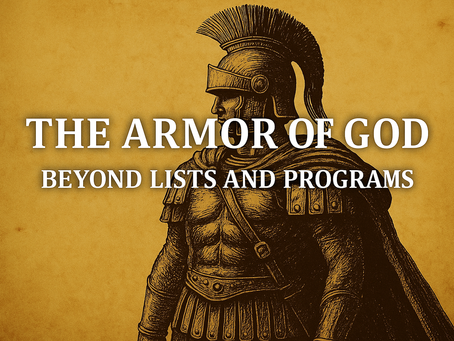top of page


Book of 3 John Summary: Walking in the Truth with Love
Book of 3 John Summary: Walking in the Truth with Love. The Third Epistle of John is the shortest book in the New Testament, yet it shines with profound pastoral care. It is deeply personal, written to commend faithfulness, warn against arrogance, and encourage hospitality toward true servants of Christ. At its heart, the book emphasizes walking in the truth while demonstrating genuine love in action.
3 min read


Book of 1 John Summary: Walking in Light and Truth
Book of 1 John Summary: Walking in Light and Truth. The First Letter of John is a pastoral and theological masterpiece. Written by the apostle John near the end of the first century, it addresses a church troubled by false teaching and wavering assurance. Unlike Paul’s letters, 1 John does not open with greetings or name its author, but its style and themes unmistakably echo the Gospel of John.
5 min read


Book of James Summary: Faith That Works
Book of James Summary: Faith That Works. The Book of James is one of the most practical writings in the New Testament, sometimes called the “Proverbs of the New Testament.” It is a letter that emphasizes the necessity of living out one’s faith with consistency, wisdom, and integrity. Unlike Paul’s epistles, which often focus on theological argument, James is direct, ethical, and intensely practical: faith without works is dead.
4 min read


Melchizedek: Priest of Righteousness and Foreshadow of Christ
Melchizedek: Priest of Righteousness and Foreshadow of Christ. Few figures in the biblical narrative are as enigmatic as Melchizedek. He appears suddenly in Genesis 14, is mentioned briefly in Psalm 110, and then reemerges with profound theological significance in the Letter to the Hebrews. Though only a handful of verses reference him directly, Melchizedek has generated immense reflection across Jewish, Christian, and even intertestamental writings.
4 min read


Who Wrote Hebrews? A Scholarly Examination of an Ancient Question
Who Wrote Hebrews? A Scholarly Examination of an Ancient Question. The Epistle to the Hebrews is one of the most sophisticated writings in the New Testament. It combines an unparalleled mastery of the Greek Old Testament (Septuagint) with exalted Christology and pastoral exhortation. Yet, unlike Paul’s letters, it bears no opening salutation or claim of authorship. From the second century until now, scholars and church leaders have wrestled with the question: who wrote Hebrew
5 min read


Can You Lose Your Salvation? A Biblical and Theological Examination
Can You Lose Your Salvation? A Biblical and Theological Examination. Few questions have caused more debate in Christian theology than the security of salvation. Can a believer, once saved, ever be lost? Or is salvation irrevocable, guaranteed by God’s grace?
5 min read


Book of Hebrews Summary: Christ the Better Covenant
Book of Hebrews Summary: Christ the Better Covenant. The Letter to the Hebrews is one of the most theologically rich writings in the New Testament, presenting Christ as the fulfillment and surpassing reality of the Old Testament covenant. Written to Jewish Christians who were tempted to drift back into the old system of sacrifices, priests, and temple rituals, Hebrews argues that Jesus is better than angels, Moses, the priesthood, and the sacrificial system itself. It is both
5 min read


Book of Philemon Summary: Forgiveness, Brotherhood, and the Gospel in Action
Book of Philemon Summary: Forgiveness, Brotherhood, and the Gospel in Action. The Letter to Philemon is the shortest of Paul’s writings, but it may be the most personal. Addressed not to a congregation but to an individual, Philemon reveals the power of the gospel to transform relationships. At its center is the story of Onesimus, a runaway slave who encountered Paul, became a believer, and was sent back to his master Philemon.
4 min read


Book of Titus Summary: Sound Doctrine and Godly Living on Crete
Book of Titus Summary: Sound Doctrine and Godly Living on Crete. The Letter to Titus is one of Paul’s most concentrated pastoral writings, brief yet packed with instructions on sound doctrine, leadership, and Christian living. Addressed to Titus, Paul’s trusted delegate in Crete, it provides a blueprint for establishing order in a new church setting. At its heart, Titus emphasizes the inseparable link between belief and behavior: true doctrine must always produce godly living
4 min read


Book of 2 Timothy Summary: Faithful to the End
Book of 2 Timothy Summary: Faithful to the End. 2 Timothy is Paul’s final letter, written from prison in Rome with the shadow of death looming over him. It carries the tone of a farewell testament, combining personal affection with urgent exhortation. Paul writes to his “beloved son” in the faith, Timothy, urging him to remain steadfast in the gospel amid hardship, false teaching, and persecution.
5 min read


Book of 1 Timothy Summary: Guarding the Gospel and Ordering the Church
Book of 1 Timothy Summary: Guarding the Gospel and Ordering the Church. 1 Timothy is one of the most personal and pastoral letters in the New Testament. Addressed to Paul’s trusted co-worker Timothy, it provides instruction on guarding the purity of the gospel, confronting false teaching, and ordering life within the church. More than just a manual for church structure, it is a heartfelt charge for faithful ministry in the face of opposition.
5 min read


Book of 2 Thessalonians Summary: Perseverance and Misunderstood Prophecy
Book of 2 Thessalonians Summary: Perseverance and Misunderstood Prophecy. 2 Thessalonians is a follow-up to Paul’s first letter to the Thessalonian church, written only a short time later. Whereas 1 Thessalonians emphasized encouragement and hope in the face of persecution, 2 Thessalonians addresses confusion about the timing of Christ’s return.
5 min read


Book of 1 Thessalonians Summary: Hope, Endurance, and the Return of Christ
Book of 1 Thessalonians Summary: Hope, Endurance, and the Return of Christ. 1 Thessalonians is widely considered Paul’s earliest surviving letter, written to encourage a young church under persecution and to correct misunderstandings about Christ’s return. Though brief, it is deeply pastoral, revealing Paul’s heart for the fledgling Thessalonian believers.
5 min read


Honoring Your Parents: Biblical Command, Limits, and Christ-Centered Application
Honoring Your Parents: Biblical Command, Limits, and Christ-Centered Application. The command to honor one’s parents is one of the most well-known in Scripture. It is often quoted as an absolute — “Honor your father and mother” — yet for many, the reality of parental relationships is not simple. What does this command mean for Christians today, especially for those who have faced manipulation, neglect, or abuse from their parents?
4 min read


Book of Colossians Summary: Christ Over All
Book of Colossians Summary: Christ Over All. Colossians is Paul’s exalted vision of Christ as supreme over creation, the church, and every spiritual power. Written to a community Paul had not personally founded, the letter is both pastoral and theological, addressing false teachings that threatened to diminish Christ’s sufficiency.
6 min read


Anxiety and the Christian Life: Wrestling with Paul, Jesus, and Reality
Anxiety and the Christian Life: Wrestling with Paul, Jesus, and Reality. One of the most quoted verses in Philippians is Paul’s admonition: “Do not be anxious about anything” (Phil. 4:6). Many Christians take this as a command, and when they inevitably feel anxious, they experience guilt on top of their worry. But what did Paul actually mean? And how does this line harmonize with the rest of Scripture — especially considering that both Paul and Jesus themselves experienced de
3 min read


The Carmen Christi: Christ’s Humility and Exaltation in Philippians 2
The Carmen Christi: Christ’s Humility and Exaltation in Philippians 2. Few passages in Scripture rise to the poetic and theological height of Philippians 2:6–11. Known as the Carmen Christi (“Hymn to Christ”), this section is widely recognized as one of the earliest Christian confessions of faith, possibly a hymn sung in the earliest churches. Paul incorporates it into his letter not merely as doctrine, but as the ultimate example of humility for believers to imitate.
4 min read


Book of Philippians Summary: Joy in Christ Amid Chains
Book of Philippians Summary: Joy in Christ Amid Chains. The letter to the Philippians is often called Paul’s “letter of joy,” but that joy is no shallow optimism. It was written from prison, under chains, with the real possibility of death ahead. Despite those circumstances, Paul presents one of the most uplifting and Christ-centered writings in the New Testament. Philippians reveals what true Christian joy looks like: not rooted in circumstances, but in Christ Himself.
4 min read


The Armor of God: Beyond Lists and Programs
The Armor of God: Beyond Lists and Programs. Few passages in Paul’s letters capture the imagination like Ephesians 6:10–18, where he calls believers to “put on the full armor of God.” For centuries, Christians have drawn strength from the imagery of helmets, shields, and swords. Yet too often, this has been reduced to a rigid checklist or a “spiritual warfare program,” as if Paul intended a formula for battle.
4 min read


Book of Ephesians Summary: The Church in Christ
Book of Ephesians Summary: The Church in Christ. Ephesians is Paul’s grand vision of the church — not as an institution, but as the body of Christ, chosen before creation, redeemed by His blood, and empowered by the Spirit. Where Galatians thunders against false gospels, Ephesians soars in worshipful praise and cosmic perspective. It lifts believers’ eyes to God’s eternal plan in Christ, then brings that vision down into practical instructions for daily life.
6 min read
bottom of page